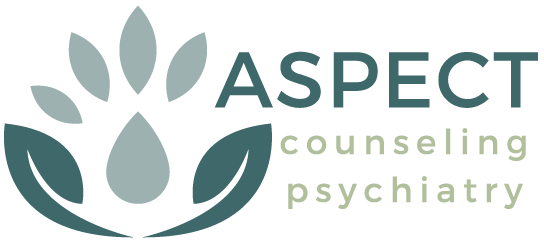Depressive Disorders refer to a group of mood disorders characterized by persistent feelings of sadness, hopelessness, and a loss of interest in activities once enjoyed. These conditions can affect a person’s thoughts, emotions, behaviors, and physical health, leading to significant impairment in day-to-day functioning.
There are several types of depressive disorders, each with unique characteristics, but all share common symptoms related to mood disturbance and the inability to experience pleasure. Depressive disorders are complex but highly treatable conditions. With the right treatment and support, individuals can manage their symptoms and lead fulfilling, meaningful lives.
Types of Depressive Disorders
Major Depressive Disorder (MDD)
Also known as clinical depression, MDD is the most common type of depression.
Symptoms last for at least two weeks and can include:
- Persistent sadness or low mood
- Loss of interest or pleasure in activities (anhedonia)
- Significant weight loss or gain, or changes in appetite
- Sleep disturbances (insomnia or oversleeping)
- Fatigue or loss of energy
- Feelings of worthlessness or excessive guilt
- Difficulty thinking, concentrating, or making decisions
- Thoughts of death or suicide
The severity of symptoms can range from mild to severe, and they can significantly affect daily functioning.
Persistent Depressive Disorder (PDD or Dysthymia)
This condition involves chronic depression lasting for at least two years, though symptoms may be less severe than in MDD.
Individuals with PDD often experience periods of low mood or depression, with additional symptoms like low energy, poor appetite, or trouble sleeping.
While the symptoms are less intense than MDD, their persistent nature can interfere with a person’s quality of life and functioning.
Bipolar Disorder
Bipolar disorder is characterized by extreme mood swings that include depressive episodes (similar to MDD) and manic or hypomanic episodes (elevated or irritable mood with high energy, impulsivity, or reckless behavior).
Depressive episodes in bipolar disorder can have similar symptoms to those of major depression.
Seasonal Affective Disorder (SAD)
SAD is a type of depression that typically occurs in the fall and winter months, due to reduced sunlight exposure.
Symptoms may include low energy, weight gain, difficulty waking up in the morning, and social withdrawal. Symptoms improve in the spring or when exposed to more natural light.
Postpartum Depression
This type of depression occurs after childbirth and is marked by feelings of extreme sadness, anxiety, and exhaustion that interfere with a mother’s ability to care for her baby.
Unlike the “baby blues” (which are common and temporary), postpartum depression is more severe and may require professional treatment.
Causes of Depressive Disorders
The causes of depressive disorders are complex and involve a combination of biological, psychological, and environmental factors, including:
Genetics
A family history of depression may increase the likelihood of developing a depressive disorder.
Brain Chemistry
Imbalances in neurotransmitters such as serotonin, norepinephrine, and dopamine are believed to play a role in depression.
Hormonal Changes
Changes in hormone levels, especially during pregnancy, menopause, or after childbirth, can contribute to depression.
Stress & Trauma
Major life events such as the loss of a loved one, abuse, financial difficulties, or relationship problems can trigger depressive episodes.
Chronic Illness
Long-term medical conditions, such as diabetes, heart disease, or chronic pain, can lead to or exacerbate depression.
Treatment for Depression
Depression is a treatable condition, and a variety of therapeutic interventions can help individuals recover. Common treatments for depressive disorders include:
Psychotherapy
- Cognitive Behavioral Therapy (CBT): A type of talk therapy that helps individuals identify and change negative thought patterns and behaviors associated with depression.
- Interpersonal Therapy (IPT): A therapeutic approach that focuses on improving interpersonal relationships and social functioning, which can reduce depressive symptoms.
Medication
- Antidepressants: These medications regulate brain chemicals involved in mood regulation. Common classes of antidepressants include SSRIs (Selective Serotonin Reuptake Inhibitors), SNRIs (Serotonin-Norepinephrine Reuptake Inhibitors), tricyclic antidepressants, and MAOIs (Monoamine Oxidase Inhibitors).
- Medication may be prescribed for those with moderate to severe depression, or for individuals who do not respond to therapy alone.
Lifestyle Changes
Mindfulness practices and stress management techniques may also help reduce symptoms.
